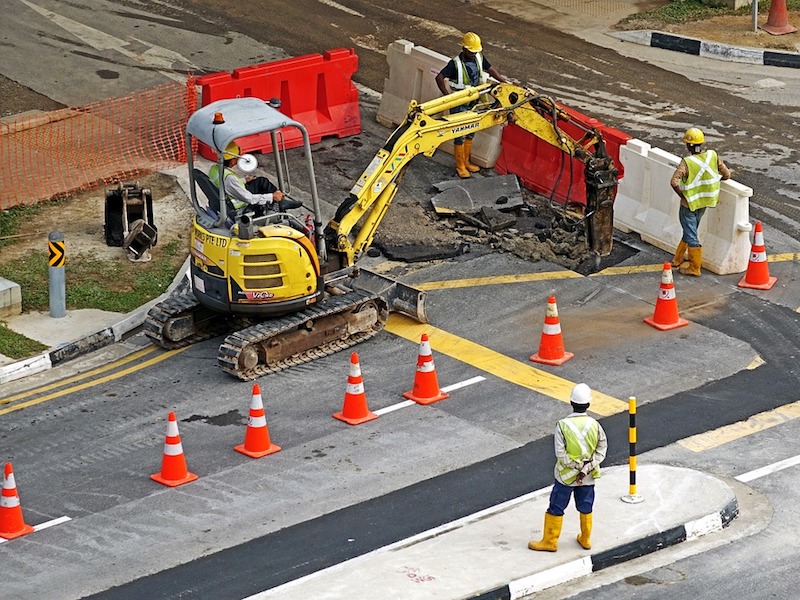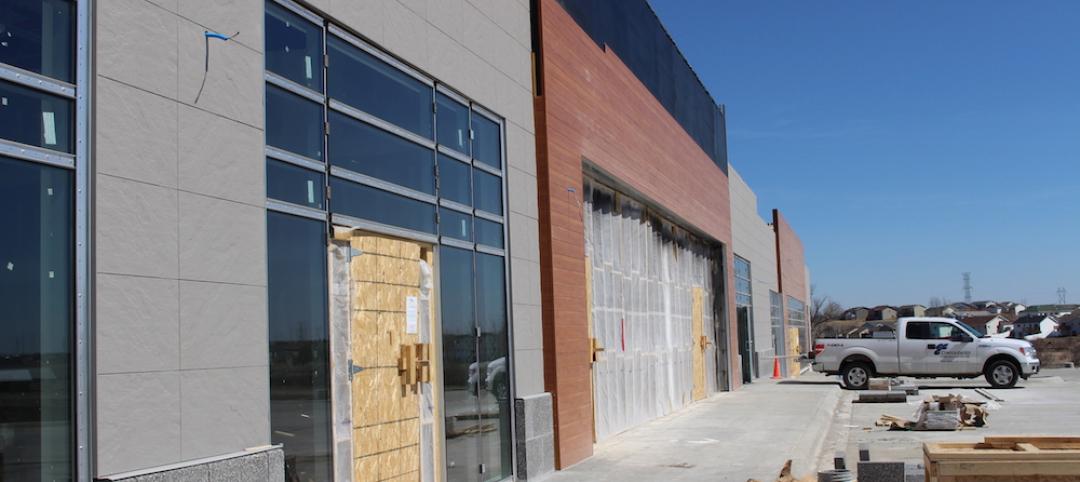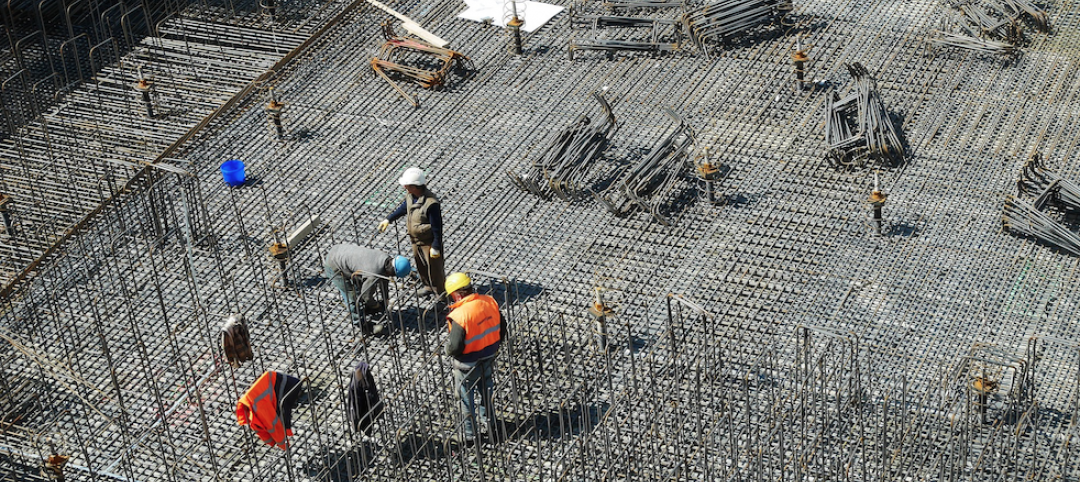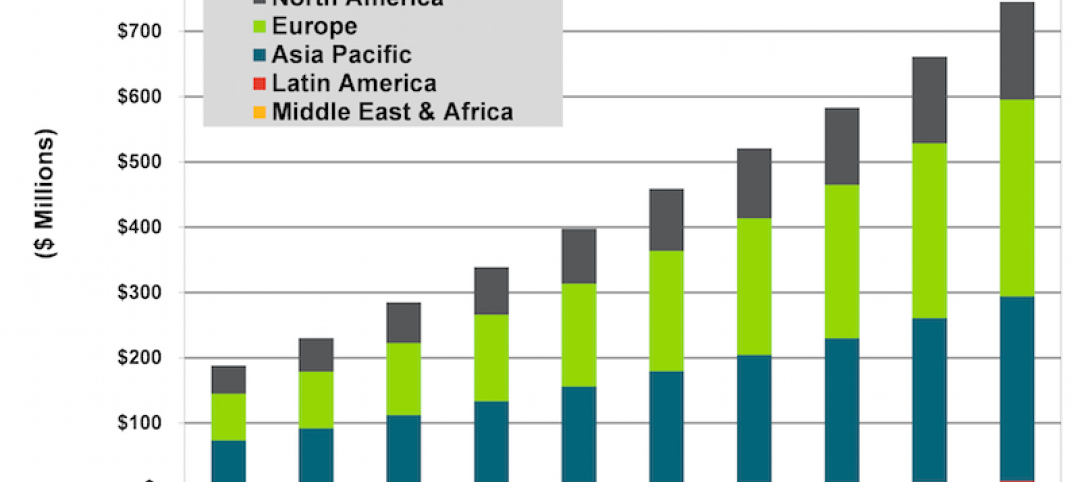54% of highway contractors reported that motor vehicles had crashed into their construction work zones during the past year, according to the results of a new highway work zone study conducted by the Associated General Contractors of America. In response, association officials have launched a new mobile advertising campaign urging drivers who routinely pass through certain work zones to slow down and be alert.
"There are simply too many cars crashing into too many work zones, putting too many lives at risk," said Spokesman Ken Kubacki, Chair AGC's Highway and Transportation Division, Western Region Projects Executive, Granite Construction Co Bakersfield, Cal. and chairman of the association's Highway and Transportation Division. "That is why we are using targeted technology to urge motorists to slow down and drive with care in highway work zones."
Kubacki said that 48% of contractors who reported work zone crashes on their projects said that motor vehicle operators or passengers were injured, and 24% of those crashes involved a driver or passenger fatality. Highway work zone crashes also pose a significant risk for construction workers, Kubacki noted. He said 25% of work zone crashes injure construction workers and 3% of those crashes kill them.
Work zone crashes also have a pronounced impact on construction schedules and costs, Kubacki said. He noted that 53% of contractors responded that their highway projects have been delayed at least a day during the past 12 months because of work zone crashes. He added that 74% of responding contractors report they feel highway work zone crashes pose a greater risk now compared to a decade ago.
Association officials have launched a new targeted mobile advertising campaign designed to reach regular highway work zone drivers and urge them to be careful in roadside construction sites before the start of the traditional summer driving season. As part of the campaign, drivers who regularly pass through highway work zones in Pittsburgh, Pennsylvania; St. Louis, Missouri; Birmingham, Alabama and Evansville, Indiana were sent mobile advertising with special work zone safety messages.
Kubacki noted that the ads show up only when the driver opens his or her mobile phone and either visits a web browser like Chrome or Safari, or uses an app with advertisements. The campaign is crafted that way to avoid distracting drivers while they are on the road, instead reaching them when they can safely use their phones. During the past three weeks, over one and half million motorists have seen the ad, Kubacki noted, while several thousand have clicked on the ads to view more highway work zone safety tips.
"We are using technology to make sure 100% of our ads are reaching work zone motorists," the highway contractor added. "Instead of trying to sell something, we are harnessing mobile advertising technology to save as many lives as possible."
The work zone safety study was based on a nationwide survey of highway construction firms the association conducted in April and May of this year. Over 550 contractors completed the survey nationwide. View the national, regional and state highway construction zone survey results.
Related Stories
Market Data | Jun 14, 2016
Transwestern: Market fundamentals and global stimulus driving economic growth
A new report from commercial real estate firm Transwestern indicates steady progress for the U.S. economy. Consistent job gains, wage growth, and consumer spending have offset declining corporate profits, and global stimulus plans appear to be effective.
Market Data | Jun 7, 2016
Global construction disputes took longer to resolve in 2015
The good news: the length and value of disputes in the U.S. fell last year, according to latest Arcadis report.
Market Data | Jun 3, 2016
JLL report: Retail renovation drives construction growth in 2016
Retail construction projects were up nearly 25% year-over-year, and the industrial and office construction sectors fared well, too. Economic uncertainty looms over everything, however.
Market Data | Jun 2, 2016
ABC: Nonresidential construction spending down in April
Lower building material prices, a sluggish U.S. economy, and hesitation among private developers all factor into the 2.1% drop.
Market Data | May 20, 2016
Report: Urban area population growth slows
Older Millennials are looking to buy homes and move away to more affordable suburbs and exurbs.
Market Data | May 17, 2016
Modest growth for AIA’s Architecture Billings Index in April
The American Institute of Architects reported the April ABI score was 50.6, down from the mark of 51.9 in the previous month. This score still reflects an increase in design services.
Market Data | Apr 29, 2016
ABC: Quarterly GDP growth slowest in two years
Bureau of Economic Analysis data indicates that the U.S. output is barely growing and that nonresidential investment is down.
Market Data | Apr 20, 2016
AIA: Architecture Billings Index ends first quarter on upswing
The multi-family residential sector fared the best. The Midwest was the only U.S. region that didn't see an increase in billings.
Building Technology | Apr 11, 2016
A nascent commercial wireless sensor market is poised to ascend in the next decade
Europe and Asia will propel that growth, according to a new report from Navigant.
Industry Research | Apr 7, 2016
CBRE provides latest insight into healthcare real estate investors’ strategies
Survey respondents are targeting smaller acquisitions, at a time when market cap rates are narrowing for different product types.

















